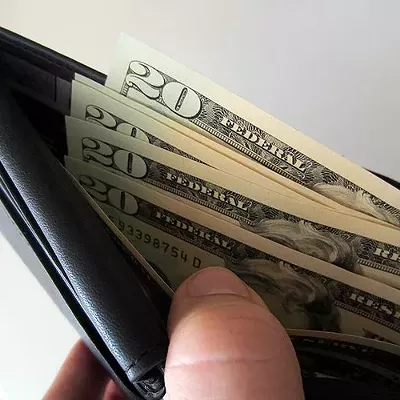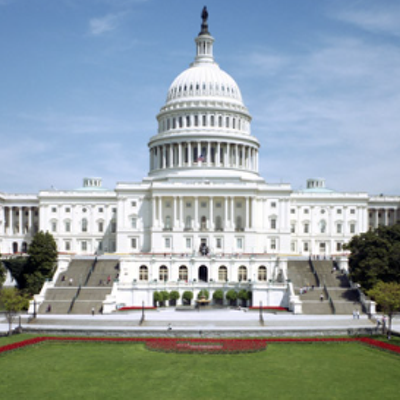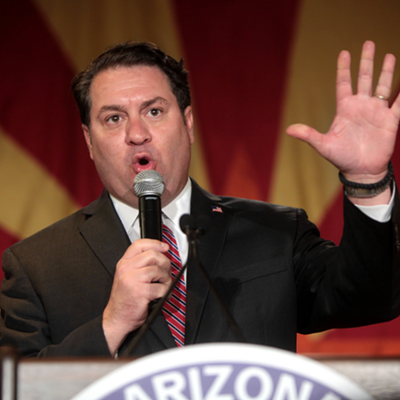GARBAGE FEE? WHY NOT JUST CALL IT THE GROWTH BILL?
So the Tucson City Council--or the ruling majority, anyway--has finally bitten the bullet and approved the $14-per-month garbage-collection fee long sought by City Manager James Keene. To balance the budget, they'll also borrow $25 million that will have to be paid back from future city budgets.The decision to transform the Environmental Services Department into an enterprise operation that must be self-sustaining is yet another example of how growth simply doesn't pay for itself. If it did, taxes would be shrinking, not rising. But with more people comes the need for more government services--and all that talk about economies of scale making government cheaper is just another serving of happy horseshit for the peasants.
Think the $20 million generated by the trash fee is going to solve our problems? Not by a long shot. The council majority is also eager to ask voters to raise the city's current cap on property taxes so they can crank those up a bit more. And let's not forget that our leaders also want us to pass a half-cent sales tax to improve our overloaded transportation system.
The success of the latter two tax hikes will ultimately rest with voters, who have shown they can be generous with the recent county bond election.
But given that our clogged roads, expanding landfills and overwhelmed police force can be directly tied to our rapid population growth, we have to ask: Why on Earth does Tucson remain the only major metro area in Arizona that still does not charge impact fees? Mayor Bob Walkup declared, in his State of the City speech some 18 months ago, that new growth would be paying its share for road costs, but the council is still dragging its feet on the implementation of the fees.
As we've said before in this space: We know growth is inevitable. But why do we continue to subsidize it when it results in higher tax bills, lower quality of life and destruction of the fragile Sonoran Desert? Can we please stop mindlessly pretending it's good for us and find some strategies for making it pay for itself?
RECALL WAITING
The folks we talk to fall into two camps when it comes to the $14-per-month garbage fee recently enacted by the Tucson City Council: People who are outraged and people who just don't give a shit.But is there enough outrage to stir a recall against City Council members? Former state lawmaker John Kromko, who is now running for justice of the peace, might just start organizing one.
Leave aside the question of whether a recall makes sense for a moment and just consider the political likelihood of success. The number of signatures required to force a recall varies depending on the office; basically, recall organizers need to collect a number equal to 25 percent of the voters in each of the races for the offices being challenged. In Walkup's case, that would be somewhere in the neighborhood of a minimum of 19,500 signatures, excluding padding to compensate for duplicate or invalid sigs.
Recall organizers would have 120 days from the date they take out petitions to gather the signatures. If they manage to gather enough of 'em, a recall election would be scheduled for the next available election day--which would be in March or May 2005.
That's just a few months before two the recall targets--Republicans Fred Ronstadt and Kathleen Dunbar--would face re-election anyway. Seems like a lot of trouble to go through just to knock them out a few months early.
But the other two targets of the recall, Republican Mayor Bob Walkup and Democratic councilwoman Carol West, won't be up for re-election until 2007. Their terms would be cut in half by a successful recall.
But the key word here is "successful." Walkup remains a popular politician who has managed to overcome a voter registration disadvantage to win citywide twice now. Of course, that was before he agreed to impose a garbage fee.
As always in politics, it's a case of "compared to what"; much would depend on how many candidates came forward and what kind of campaigns they run.
And let's not forget--the last time city council members were successfully recalled, it was when they raised water rates back in the mid-'70s. Could the garbage fee have the same resonance with the voters?
A lot will depend on whether Kromko can pull together the effort. Will he be a gangsta or a pranksta? Wait and see.
LACK OF INITIATIVE
Besides the effort to torpedo Clean Elections (see "Scrubbed Clean," page 13), there are a few other signature drives with a deadline of Thursday, July 1.The best-known is the Protect Arizona Now initiative, which may end up with enough signatures to make the ballot if its supporters can make peace with one another and combine their petition efforts.
But thanks to the magic of democracy, just about anyone can try to gather the necessary 122,612 valid signatures to get a law on the ballot. (Constitutional amendments require 183,917 valid signatures.)
Unlike past years, just a few of the signature efforts will prove successful. Among the initiatives that probably won't be on the ballot is Tucson doctor/lawyer/political gadfly Mark Osterloh's effort to create a lottery that would pay one lucky voter $1 million. Osterloh, who was also involved in Clean Elections and various health care initiatives, wanted to introduce an incentive to encourage more people to vote, but he told the press last week that he was abandoning the idea of making the ballot.
Osterloh's plan is such a lousy idea that we're a little disappointed it didn't make the ballot, just so we'd have something to write about for the next four-plus months until the November election.
While we don't want to disenfranchise anybody, we also don't want folks wandering into the polling places just because they think it might make them rich. If that's their only motivation, it's hard to imagine that they'd spend much time studying up on candidates and issues--and if they can't be bothered to do that, we'd just as soon they stay home on Election Day.
Here are a couple of other initiatives that aren't likely to make the ballot:
· Preserving America's Children Today, which would have forced the election of judges in all Arizona counties. We're not sure what it has to do with kids, but it sure sounds good!
· The Last Call Act of 2004, which would have extended last call to 3 a.m. Fortunately, lawmakers stepped in on this one and extended hours to 2 a.m. beginning Aug. 25. Cheers!
TRUST BUST
The dream of luring lawmakers back to the Capitol to put the reform of state trust land on the ballot is dead for the year. The proposed reform, which would have protected about 3 percent of state trust land while streamlining the development of other parcels, was put together by a coalition of environmentalists, developers, ranchers, educators and other players. But some environmental groups, including the Sierra Club and the Center for Biological Diversity, complained that it gave away too much to ranchers and utilities.Lawmakers are now saying the reform is one of the biggest issues since statehood itself--and faced with such an important decision, they did what they usually do: absolutely nothing.








